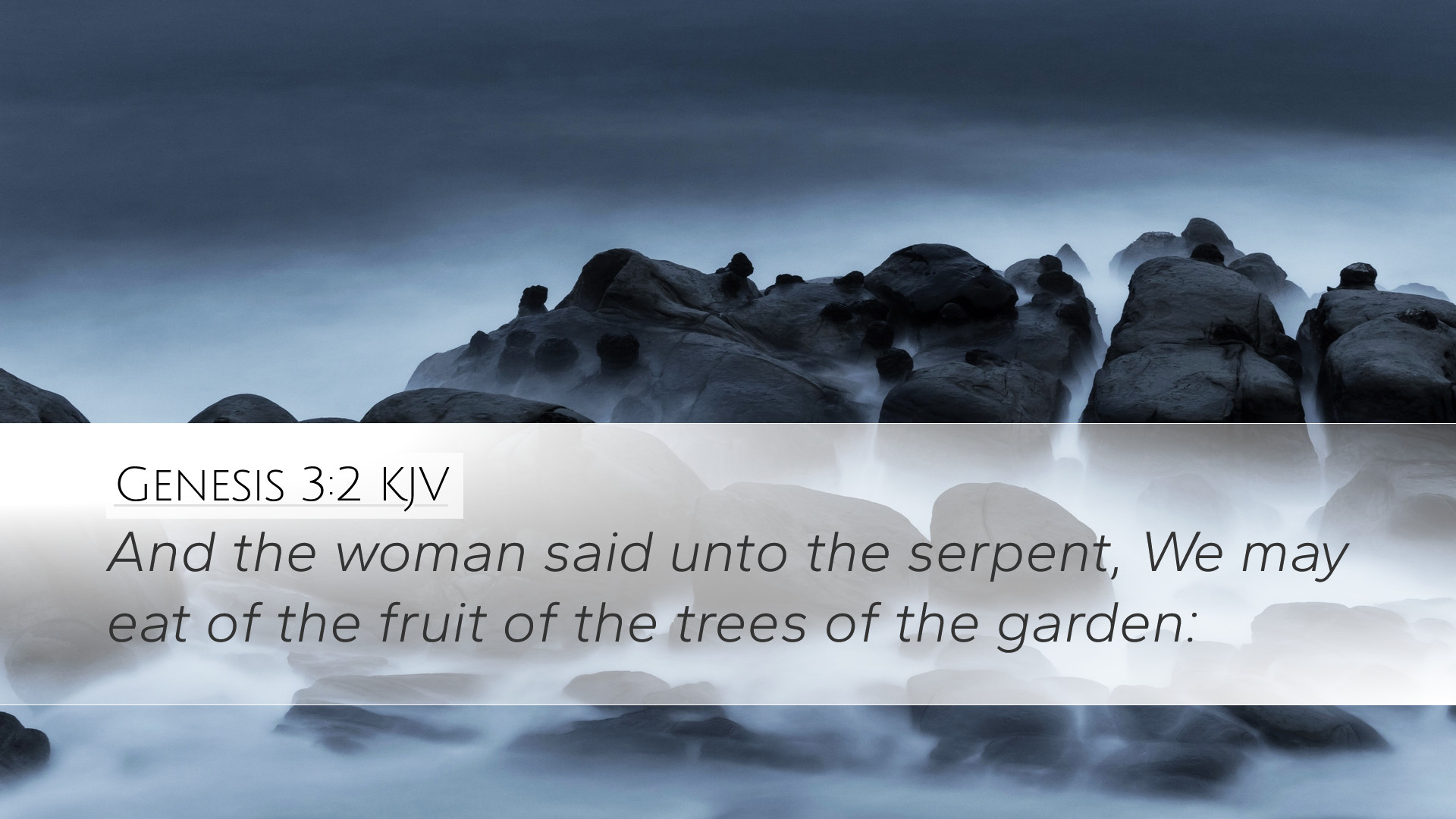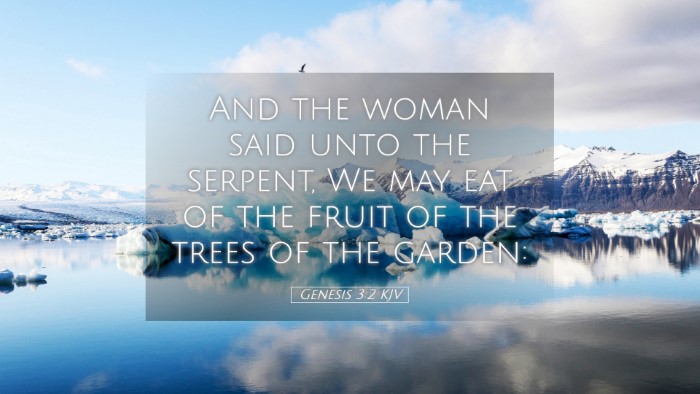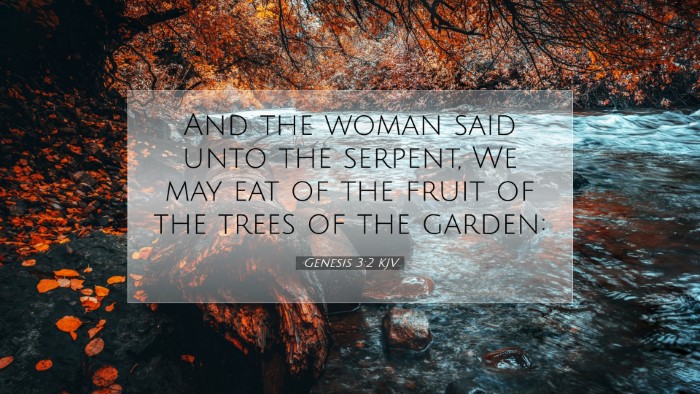Commentary on Genesis 3:2
Genesis 3:2 reads: "And the woman said unto the serpent, We may eat the fruit of the trees of the garden:" This verse introduces a critical moment in the biblical narrative, where Eve engages in dialogue with the serpent, marking the beginning of temptation and the subsequent fall of humanity. Multiple public domain commentaries offer profound insights into its implications, context, and theological significance.
Contextual Analysis
The setting of Genesis 3:2 is vital as it occurs in the idyllic Garden of Eden, a place of perfect communion between humanity and God. Here, Adam and Eve were given the freedom to eat from any tree except for one, which introduces the concept of divine command and human free will.
Matthew Henry's Perspective
In his commentary, Matthew Henry elucidates the importance of Eve's response to the serpent. He notes that by stating they may eat of the trees, she acknowledges the abundance of God's provision. This reflection emphasizes God's generosity and goodness, which is consequential in later discussions about sin and disobedience.
Albert Barnes' Commentary
Albert Barnes stresses the significance of Eve's dialogue with the serpent. He points out that her response indicates a partial understanding of God's command. She includes the possibility of eating freely from the trees, but Barnes notes her omission of specific details of God's command, particularly the warning against the tree of knowledge. This could point to a growing confusion regarding God's instruction, illustrating how doubt can creep into the human heart.
Adam Clarke's Observation
Adam Clarke's insights focus on the psychological aspect of Eve's interaction with the serpent. He elaborates on how the serpent's cunning approach leads Eve to engage in conversation, thus creating a space for doubt. Clarke suggests that Eve's declaration of freedom might also reflect her initial innocence and trust in God's goodness, contrasting sharply with the impending act of disobedience.
Theological Implications
Genesis 3:2 serves not only as a narrative pivot but also as a theological foundation for understanding the nature of temptation, free will, and divine instructions. Several key themes emerge from this verse.
Human Autonomy and Divine Command
The autonomy of Eve in expressing what she may or may not do regarding God's commands raises questions about human freedom versus divine sovereignty. As Matthew Henry notes, humanity is granted the privilege of choice in a realm of abundance yet is cautioned about the potential consequences of disobedience. This interplay is fundamental for theological discourse surrounding sin.
Faith and Doubt
The dialogue reveals the seeds of doubt that can disrupt faith. As suggested by Albert Barnes, Eve's less than precise recollection of God's command highlights the susceptibility of human nature to misinterpret or forget divine instruction in the face of temptation. This observation continues to resonate with contemporary Christian thought, emphasizing the need for vigilance and adherence to God's Word.
God's Generosity
The mention of the trees in the garden by Eve underscores a critical aspect of God's nature—His generosity. Henry emphasizes that, despite the prohibition, God has allowed humanity access to a wealth of resources. Reflecting on this can cultivate gratitude and acknowledgment of God's provision in the lives of believers today.
Application for Believers
Genesis 3:2 invites reflection for pastors, theologians, and laypersons alike. The following key applications can be drawn from the commentary insights.
-
Understanding temptation: Believers should recognize the patterns of temptation as demonstrated in this narrative. Engaging with doubt can lead to a questioning of God's goodness and intentions.
-
Scriptural fidelity: The importance of accurately recalling and adhering to God's Word cannot be overstated. As Eve's conversation illustrates, misinterpretation can lead to grave consequences.
-
Recognizing God's abundance: Maintaining a perspective of gratitude for God's generous provision is essential, especially in times of trial or temptation.
-
Engaging in dialogue with God: Encouraging individuals to speak openly with God about doubts and fears, as Eve did with the serpent, can be a pathway to clarity and reaffirmation of faith.
Conclusion
Genesis 3:2 serves as a foundational text that illustrates the complexities of human nature in relation to divine command, choice, and the inception of sin. Insights from Matthew Henry, Albert Barnes, and Adam Clarke enhance our understanding of this pivotal moment, emphasizing the importance of vigilance in our own lives as we navigate the challenges of faith in a fallen world.


